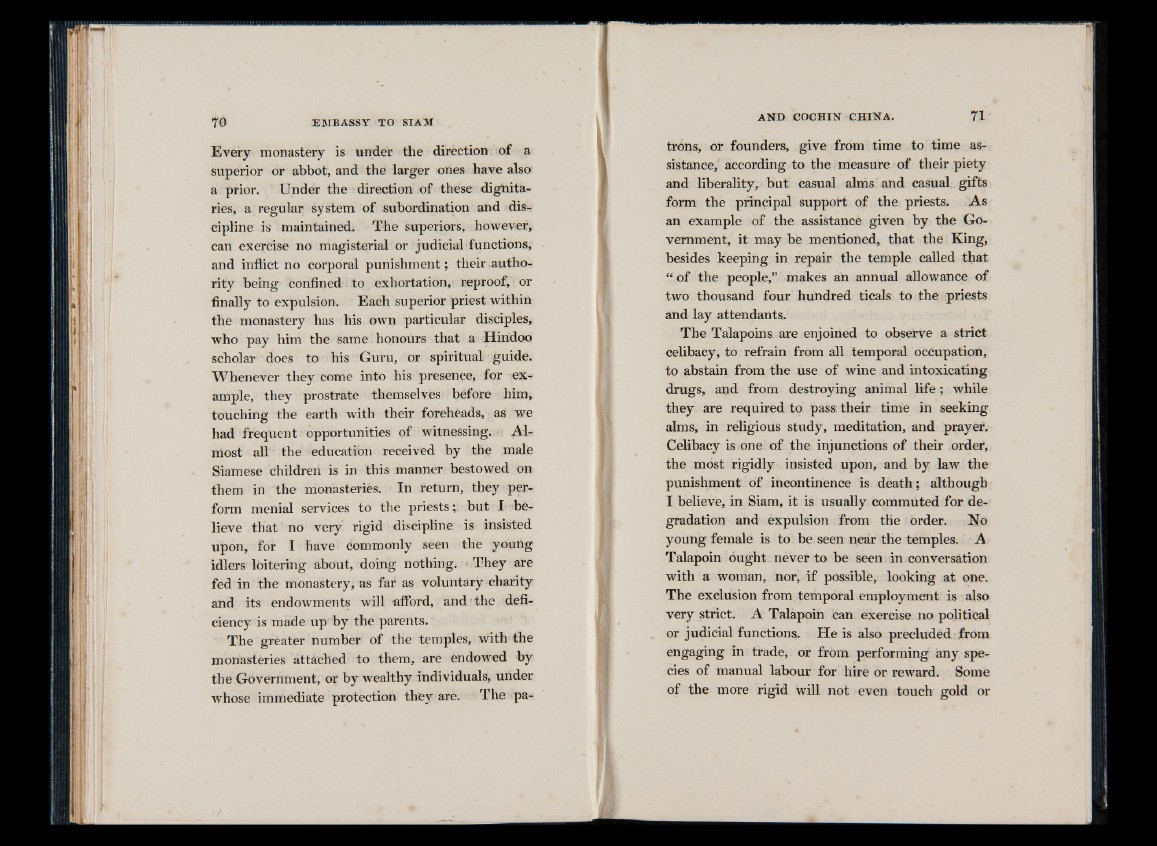
Every monastery is under the direction of a
superior or abbot, and the larger ones have also
a prior. Under the direction of these dignitaries,
a regular system of subordination and discipline
is maintained. The superiors, however,
can exercise no magisterial or judicial functions,
and inflict no corporal punishment ; their authority
being confined to exhortation, reproof, or
finally to expulsion. Each superior priest within
the monastery has his own particular disciples,
who pay him the same honours that a Hindoo
scholar does to his Guru, or spiritual guide.
Whenever they come into his presence, for example,
they prostrate themselves before him,
touching the earth with their foreheads, as we
had frequent opportunities of witnessing. Almost
all the education received by the male
Siamese children is in this manner bestowed on
them in the monasteriès. In return, they perform
menial services to the priests; but I believe
that no very rigid discipline is insisted
upon, for I have commonly seen the young
idlers loitering about, doing nothing. ■ They are
fed in the monastery, as far as voluntary charity
and its endowments will afford, and the deficiency
is made up by the parents.
The greater number of the temples, with the
monasteries attached to them, are endowed by
the Government, or by wealthy individuals, under
whose immediate protection they are. The <paAND
COCHIN CHINA. 71
trons, or founders, give from time to time assistance,
according to the measure of their piety
and liberality, but casual alms and casual gifts
form the principal support of the priests. As
an example of the assistance given by the Government,
it may be mentioned, that the King,
besides keeping in repair the temple called that
“ of the people,” makes an annual allowance of
two thousand four hundred ticals to the priests
and lay attendants.
The Talapoins are enjoined to observe a strict
celibacy, to refrain from all temporal occupation,
to abstain from the use of wine and intoxicating
drugs, and from destroying animal life ; while
they are required to pass their time in seeking
alms, in religious study, meditation, and prayer.
Celibacy is one' of the injunctions of their order,
the most rigidly insisted upon, and by law the
punishment of incontinence is death; although
I believe, in Siam, it is usually commuted for degradation
and expulsion from the order. No
young female is to be seen near the temples. A
Talapoin ought never to be seen in conversation
with a woman, nor, if possible, looking at one.
The exclusion from temporal employment is also
very strict. A Talapoin can exercise no political
or judicial functions. He is also precluded from
engaging in trade, or from performing any species
of manual labour for hire or reward. Some
of the more rigid will not even touch gold or